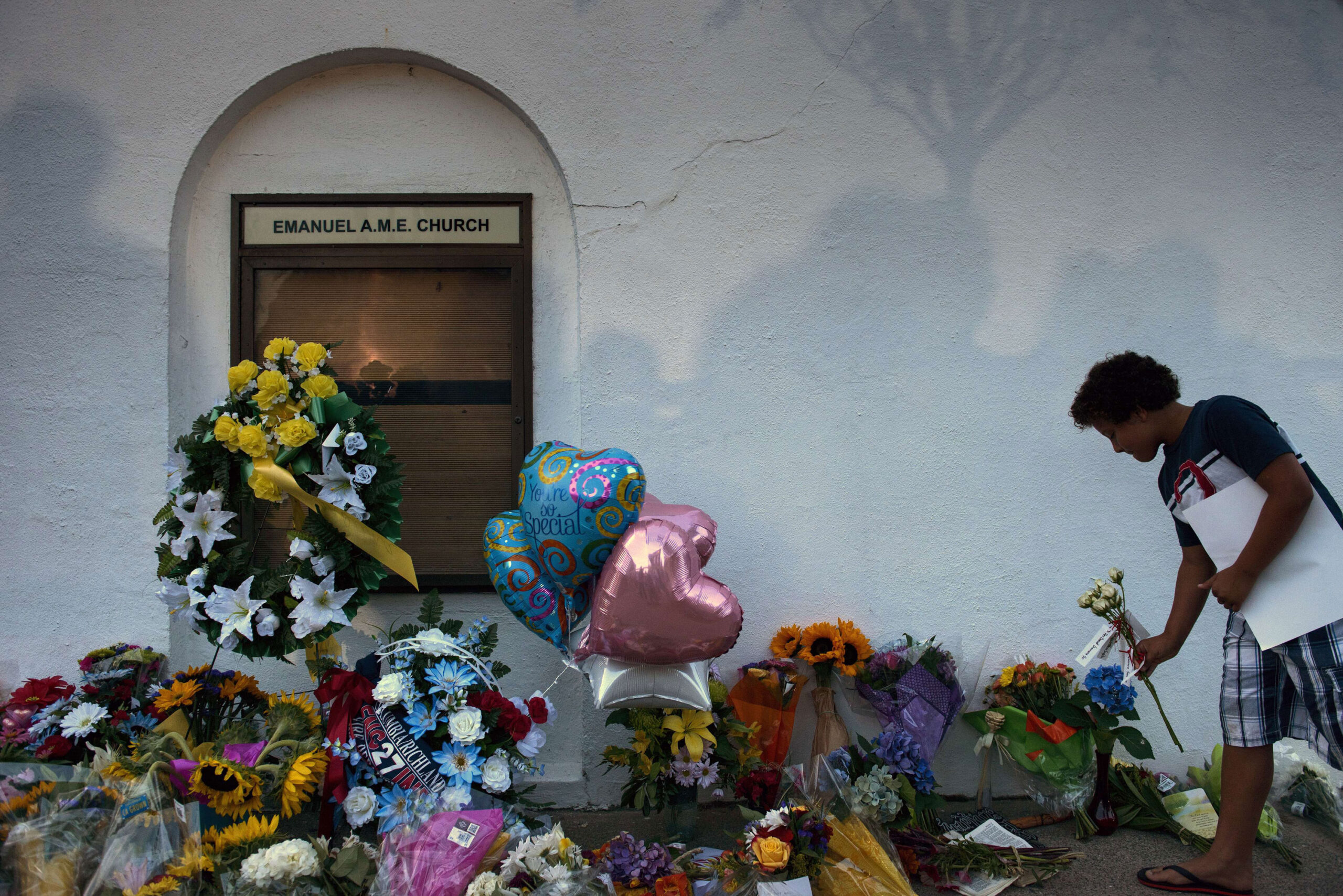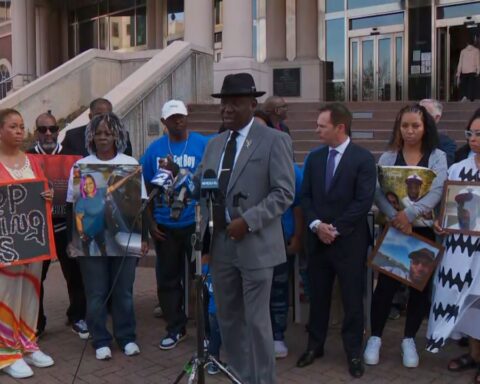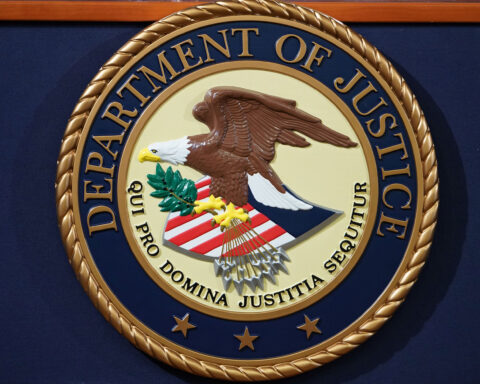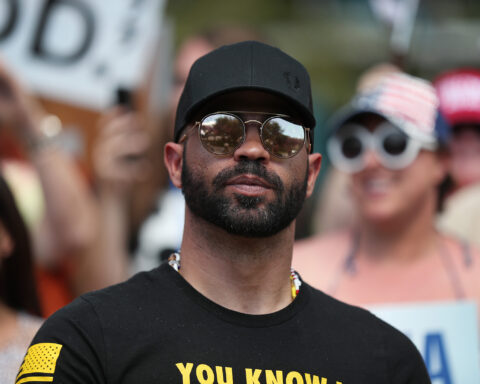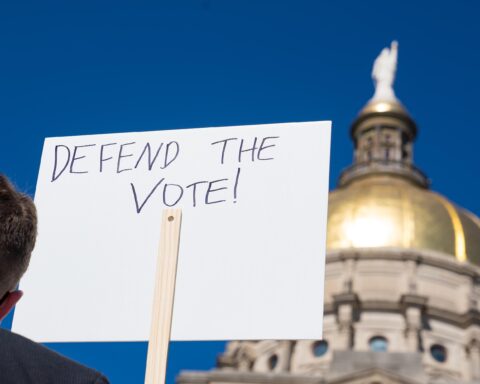The families of nine people fatally shot in 2015 at a historically Black church in Charleston, South Carolina, have reached an $88 million settlement with the Justice Department in their lawsuit over the shooter’s weapon purchase, according to agency officials and a news release Thursday.
The settlements range from $6 million to $7.5 million per claimant for those killed at Emanuel African Methodist Episcopal Church and $5 million per claimant for survivors, the Justice Department said.
The widow of the Rev. Clementa Pinckney thanked supporters and those involved in reaching the settlement.
“Even though Clementa is not with us here physically, I know spiritually he is with us, and I know that he’s smiling down on us right now,” Jennifer Pinckney said.
“He will be missed, along with all the others that didn’t survive that night.”
The victims killed ranged from 26 to 87 years old. They were Pinckney, the Rev. Sharonda Coleman-Singleton, the Rev. DePayne Middleton-Doctor, the Rev. Daniel Simmons, Cynthia Hurd, Susie Jackson, Myra Thompson, Ethel Lance and Tywanza Sanders.
Dylann Roof, an avowed White supremacist, was convicted of federal murder and hate crimes charges. He was sentenced to death in 2017 and has appealed his conviction.
Pinckney’s daughter Eliana said the settlement has profound meaning.
“For the first time, I think, in so long … as a young African American woman to see the government acknowledge the fact that racism still exists and how prevalent it is in our community and then actively try to combat it in every way that they can and to acknowledge that gun violence is an issue and to do everything they can to correct a mistake … is so important,” she said.
Bakari Sellers, one of the attorneys for the victims, said the settlement is a “big ‘F you’ to White supremacists of this country.”
He said the settlement of $88 million — $25 million split among survivors and $63 million split among the families for those killed — is symbolic because the number 88 is a symbol of hate and was written on Roof’s shoes while he carried out the shooting.
“Domestic terror, White domestic terror, is a real issue in this country,” Sellers said. “These individuals were killed because they were Black. That attack was not on First Baptist, that attack was on Mother Emanuel AME Church. So let’s not misconstrue what this issue is.”
‘No one disputes’ the shooter shouldn’t have been able to buy a gun, court says
A federal appeals court ruled in 2019 that families of those slain could sue the US government for negligence over lapses in the FBI background check that allowed Roof to buy the semiautomatic pistol used in the massacre.
Before the massacre, Roof had been arrested on a drug charge that should have prevented him from purchasing the gun had the charge been properly reported during the background check, the appeals court found in 2019.
Had the background check been performed properly, “no one disputes” it would have kept him from buying the gun, the court wrote.
Bipartisan push to improve background checks lingers
Shortly after the Charleston massacre, federal lawmakers made a bipartisan demand for tough background checks on gun purchases.
The House passed the Bipartisan Background Checks Act of 2021 in March. But the bill has not gone before the Senate.
After an Office of Inspector General’s audit in July, the FBI said it would consider modifying the background check system known as National Instant Criminal Background Check System (NICS) after an 18-year-old Florida resident traveled to Colorado in 2019 to buy a shotgun.
The NICS system, which is used by licensed federal firearms sellers and dealers, did not have the capability to verify the buyer was a resident in Florida, which prohibits the sale of firearms to anyone under 21.

